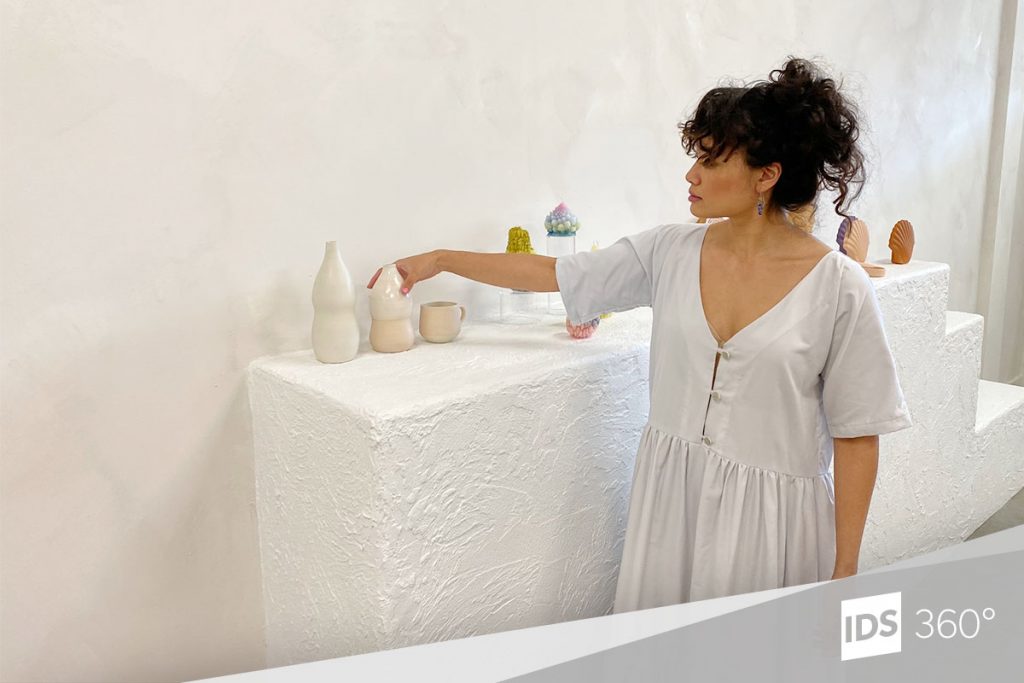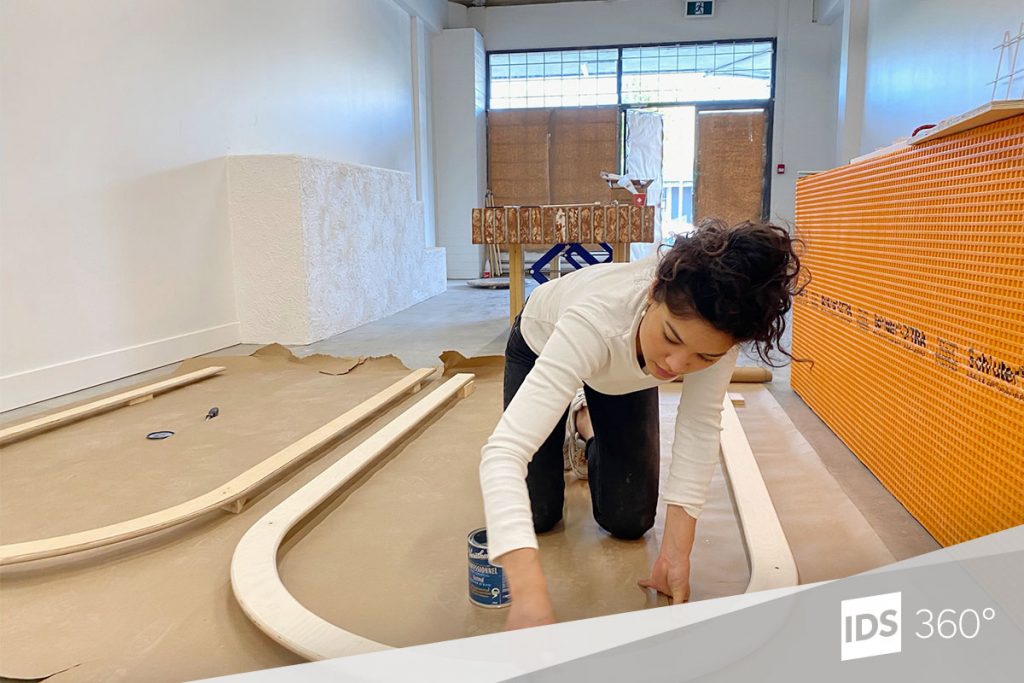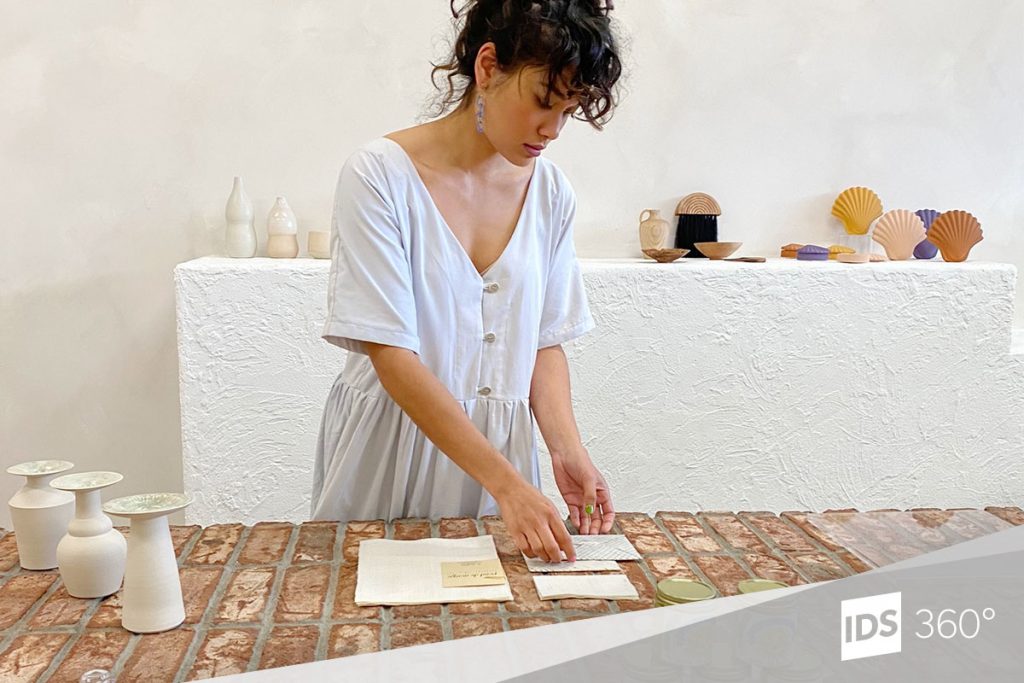
IDS 360° Virtual Series: Picnics & Poetry

IDS 360°, presented by Volvo Cars Canada, is a new virtual series created by IDS in solidarity with the industry and designers we champion. Launched across all our platforms, it highlights handpicked, diverse brands with video Q+As, product launches, studio tours, and more. Not taking our voice and reach for granted, the national IDS platform is accessing individual designers, architects, and brands of all sizes to hear their visions, challenges, triumphs, and potential for a more thoughtful, more beautiful design practice, post-pandemic.
We are thrilled to continue the IDS 360° series with Sally Nadison Reyes, owner of Picnics & Poetry, a new creative and collaborative space in Strathcona, Vancouver. We recently sat down with Sally to chat about the inspirations behind this space and how it has changed during this turbulent time.
Q: Hi Sally, thank you for (virtually) sitting down with us today. To start off, please tell us a little bit about yourself, and what inspires your love for design.
A: I was born in the Middle East to a Palestinian father and Thai mother. There was no shortage of culture in our household. Some of my earliest memories are witnessing my mother and my Tetah (grandmother) tinkering away in the kitchen crafting decades-old, traditional recipes. This was my first introduction to process and intention and understanding that beautiful things take time to create. I hadn’t realized how influential this upbringing was until I fell into the design world.
As strange as this might sound, I fell in love with design through TV shows and movies from the 1950s-1960s, namely Agatha Christie’s Hercule Poirot, which was set in the 1960s. I’ll never forget the moment I watched the very first episode years ago. I was transported to another time and another place. I found myself rewatching episodes in order to capture every detail that was carefully considered in designing the set; all contributing to the story in some way. To me, these details are all small parts that make a whole. When purposeful subtleties are considered and executed perfectly, they evoke a memory or an emotion, which is incredibly inspiring.
This is how my journey with design began, and it’s what I find I’m consistently drawn to. The designs that I gravitate towards don’t necessarily hold a specific style or aesthetic. They tell a story, and getting to know the humans behind them binds everything together. It’s not just about something you see, but also about something you experience and feel as well. To me, this is what I love about design.
A designer in particular whom I’ve always regarded as one of my favourites is Constantin Brâncuși, a Romanian sculptor who later made his career in France. His shapes and lines were the epitome of modernism at the time, and I find it incredibly fascinating to see a lot of his designs mirrored by new and contemporary artists lately. I highly recommend adding his gallery in Paris, Atelier Brâncuși to your list of places to visit–––once travel opens up and it’s safe again, that is!
Q: What is the inspiration behind Picnics & Poetry?
A: Picnics and Poetry was born from a desire to create a space that I longed to visit in Vancouver but could never find. This space is an extension of my own home and way of life. A microcosm of how I experience the world and this universe. It is an expression of my ethos, from supporting craftsmanship and slow living to a de-commercialized sense of beauty and way of life.
Picnics and Poetry is about connection, presence, and process. To me, with everything in life, it has always been about the process more so than the finished object. For when the process is intentional, that story is forever written into that object.
This is a space for artists and designers to reconnect with their own practices, to take risks, and to experiment with new work. It’s reigniting the intention and process behind their practices that may have otherwise been muted over the years due to production and survival.
The last few months have really reinforced this; we have now seen how things can change unexpectedly at any moment. Being intentional with the things we do and surround ourselves with is imperative to our well-being and our community.

Q: Did you have to adapt the vision of what Picnics & Poetry will be due to the changing landscape?
A: In essence, my vision for Picnics and Poetry hasn’t changed, but the execution certainly has. Initially, the plan was to go full-force with a series of workshops, special events, and talks that would have involved large groups of people in the space at any given time. I often refer to this project as a transient space, and with the changing landscape, I’ve realized that despite the physical space Picnics and Poetry occupies, it also holds a space in the community and in the digital world. It’s really important to me that I continue to create space for art and the community, and so most of what I’ve been planning to do in person will shift to the online world, or be executed on a much smaller scale.
Recent events have also provided me with an entirely new sense of peace and perspective. Something I found myself telling the brands I work and collaborate with regularly is that we all need to go at the pace that makes sense for us right now. In a way, we’ve all been forced to pause, re-calibrate, and reassess our expectations of time and the things we introduce into our lives. Ironically, this is one of the reasons why I created this space in the first place.

Q: What are you grateful for now more than ever?
A: Without a doubt, this entire process has made me eternally grateful for the relationships that I’ve cultivated over the years. This industry that I’m in is a very “human” one. We are all understanding of each other, we are all patient with each other, and most of all, we support each other.
I’m also grateful that technology has enabled us all to stay connected during a time of isolation. People are now engaging with each other in entirely new ways. This is something that I’ve been using more than I anticipated. I’ve been sharing sneak peeks and process photos and videos of the space build out in order to show people a) what goes on behind the scenes; but also b) to involve them in a process that otherwise goes unseen. Despite not being able to see everyone in real life, we’re still connected.
To speak a little more tangibly, I’m also incredibly grateful for the wonderful team that has been helping me build out the Picnics and Poetry space. Because of distancing, I didn’t want to introduce a large group of people into the space. So every single feature and fixture has been built by hand by a small team of three (myself, my husband James, and my brother in law Chris––who also happens to be a contractor). It has been a much slower process, but one that I’ve been enjoying so much more, and it’s pretty special to know that elements in the space have my hand in their creation.
Q: What behaviour patterns do you think have been shifted by physical distancing and the pandemic in the past few months, and which will you want to hang on to?
We are now hyper-aware of our surroundings. With physical distancing, we all have begun to be critical of who we’re with, where we go, and what we introduce into our lives. Very often I’ve spoken to people who have said that they’re starting to enjoy what usually would have been a mundane moment in their day. For example, taking the time to make tea or coffee has become more intentional and ritualistic––we are not rushing out the door anymore! People are slowing down and are spending more time at home. This is something I would love for everyone to hang on to; an appreciation for the process in everyday life and not just the outcome.